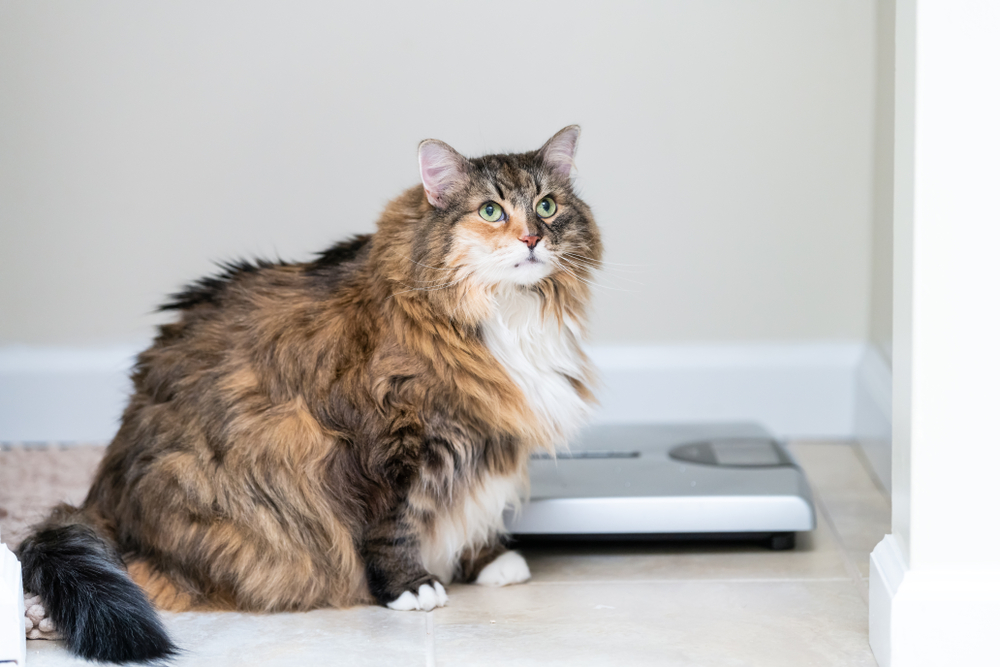Animal obesity is an easily preventable, yet all too common, health concern seen in pets everywhere. It’s a frustrating and dangerous condition that can affect pets of all kinds. What’s worse, it’s often caused by pet owners who are equating overfeeding with love and are unknowingly contributing to their pet’s weight gain without even realizing it.
A common culprit is feeding habits. It’s very tempting to reward pets with extra treats for performing tricks, behaving well during a trip to the vet, or using them to incentivize certain behaviors (going outside or coming back in). Then, there are instances of simply overfeeding pets when filling their bowls. And let’s not forget how hard it can be to resist those whimpers and pouty faces when they want a sliver of whatever it is we’re eating.
The easiest remedy is to cut down on the extra treats and make sure not to overfeed your pet during mealtime. The type of food a pet eats may be related to excess weight gain that leads to obesity. If you’re unsure about the right food for your furry friend, visit our vet clinic in Philadelphia and we can help you find the best brand.
Another contributing factor is the lack of exercise. This is especially problematic with animals who are also being overfed. Different animals have different needs and abilities when it comes to physical exertion. Age and breed influence this as well. Older dogs may benefit from a leisurely walk once a day, whereas younger dogs will have the energy for hours of play. Cats, on the other hand, can play with various toys throughout the day.
Spaying or neutering a pet can also influence an animal’s weight gain, though it is not the direct cause. After being spayed or neutered an animal’s hormone levels change, which in turn changes their caloric needs. It’s important to remember that you might need to adjust the amount (or even type) of food you give your pet if they’ve had this procedure done.
Obesity in pets is linked to many of the same health concerns that it is in humans. It can significantly reduce lifespan, put strain on the heart and lungs, and cause chronic joint pain. They are more prone to heat exhaustion too. If your pet is struggling with their weight and you’re not sure what to do, don’t worry. Meet with a compassionate veterinarian in Philadelphia by coming to Indy Veterinary Care and we’ll help you create a plan to get your pet back to an optimal weight. A healthy pet is a happy pet, and animal happiness is our business.

